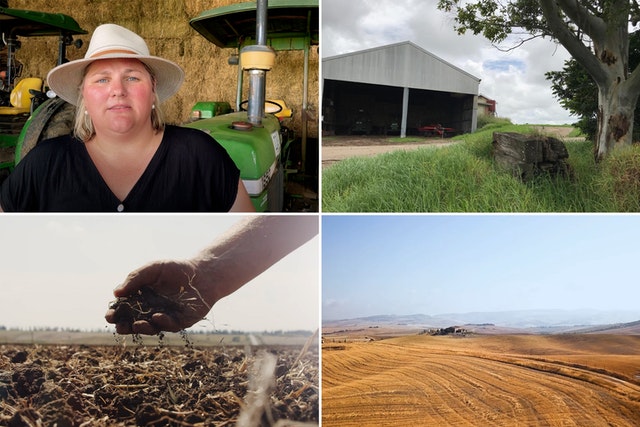Source: news.bahai.org

SYDNEY — Farmers as well as agricultural scientists and policy makers from Australia, Africa and North America have joined the global outcry at the unjust confiscation of lands belonging to Bahá’í farmers in Iran, as the Iranian authorities face mounting criticism over the widespread and systematic persecution of the country’s Bahá’ís.
In an open letter to Iran’s Chief Justice Ebrahim Raisi and acting Minister of Agriculture Abbas Keshavarz, figures in the field of agriculture from several countries across the world—including Canada, Ethiopia, Mali, and the United States—say they are speaking out because they “are concerned about the plight of smallholder farmers throughout the world who often face injustice from arbitrary authority.
“These recent land seizures take place within the context of escalating raids on Bahá’í owned homes and businesses in Iran,” they say, expressing their alarm at the latest stage in the ongoing persecution of the Bahá’ís of Ivel who have been displaced and economically impoverished by Iranian authorities solely because of their religious beliefs.
The open letter states: “We understand that Bahá’í families have farmed land in Ivel for over 150 years and that these families have been constructive members of the local community, by, for instance, starting a school for children of all faiths and by carrying out measures to improve the hygiene and health of all community members.
“Despite their contributions to the community,” the letter continues, “they have faced a series of persecutions throughout the years, characterized by mass expulsion and displacement, and the demolition, bulldozing and confiscation of their homes.”
The signatories call on Chief Justice Raisi and Minister of Agriculture Keshavarz to end the persecution of Bahá’ís, saying, “We write as fellow agriculturists to bring attention to this instance of persecution and urge the Iranian authorities to overturn their decision with regard to the farmers of Ivel.”
Meanwhile in Australia, a moving video message released on behalf of members of the country’s farming community draws attention to the plight of Bahá’í families in the Iranian village of Ivel.
“Farming is a difficult job at the best of times,” says Claire Booth, a farmer from New South Wales, in the video message. “It’s not made any easier by the frequency of floods, droughts, fires, climate change, and most recently, the impacts of the pandemic.”
The video message describes the role of a supportive government in assisting its farming communities, drawing a sharp contrast with Iran’s harsh treatment of the country’s “peaceful Bahá’í community.”
“We stand in solidarity with our farming brothers and sisters in this country,” the farmers say, “and call on the Iranian government and judiciary to return the land and properties to their rightful owners—Bahá’í farmers in Ivel.”
March 2, 2021 1:14 am
What an appropriate stand, for the farmers of the world to embrace their fellow farmers In Iran. And how clear-eyed that they, one and all see this injustice perpetrated by authorities on the Baha’i farmers in the Persian city of Ivel for what it is, a theft. If farmers stand together, farmers who work mightily to provide the most basic of human needs, food, what virtues can a people offer in return but that the land-right of farmers who have served their community so faithfully for generations be protected. Can the people of Iran now speak in favor of their noble countrymen, the tens of thousands of Baha’is among them who are so oppressed by the authorities, solely for their religion.